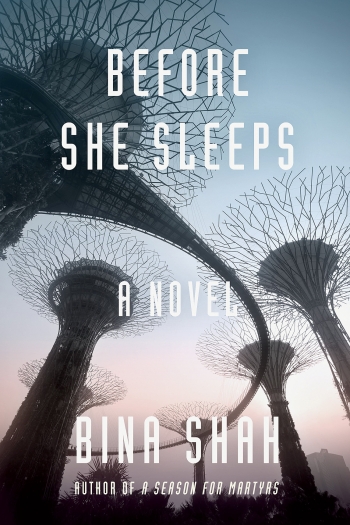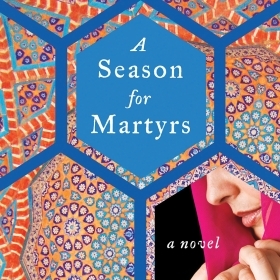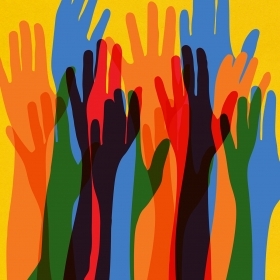Before She Sleeps, the second novel by Bina Shah ’93 to be published in the United States, has drawn comparisons to the contemporary dystopian classic The Handmaid’s Tale. Set in futuristic Green City, where women are scarce due to a “Gender Emergency” and are required to take multiple husbands (and fertility drugs) to devote their lives to procreation, the novel follows a group of women who have risked everything to resist becoming Wives.
In a rogue underground community called the Panah, women live together off the grid, emerging only at night to visit “clients.” If the lady-of-the-night trope conjures women selling sex, Shah subverts this expectation by giving us women selling something seemingly mundane but indispensible—physical closeness and companionship.
The Wives of Green City (a futuristic town somewhere between the Middle East and South Asia) find their attention divided between their multiple husbands and children. The women of the Panah, however, are free to devote full nights to their male clients. While they might share a meal, a contraband smoke, or even a bed with a client, any kind of sexual contact is forbidden. Many clients are powerful men, devoting their days to enforcing the restrictive Green City status quo and their nights compelled by the very women they’re meant to punish—the women who refuse to comply. This mutually beneficial relationship somewhat ensures the safety and discretion of the Panah.
The novel’s first section, “Reluctance,” follows Panah head Lin, insomniac Sabine, and envious Rupa, alternating among their perspectives as they try (or happily fail) to keep emotional distance from their clients while navigating relationships with one another. When Lin’s well-meaning attempt to help Sabine with her insomnia has catastrophic effects, the women’s sanctuary becomes ensnared in Green City bureaucracy that threatens everyone involved, both above and below ground.
The term “dystopian” fails to convey how authentic and immediate the scenarios in this novel feel. With its characters earning a living performing what we now recognize as emotional labor, Shah’s tale melds elements of this reader’s idea of utopia (women are valued for the labor we perform with our brains and bodies) with a terrifying flipside (women are being stripped of a choice of what labors we perform).
Shah, a celebrated Pakistani feminist, has crafted a society that feels all too familiar and terrifyingly possible. I was captivated by the world of the Panah. For the reader who has hitherto avoided dystopian novels because reality is terrifying enough, Shah’s novel satisfies.
Cedilnik is a freelance writer in New York City.







We ask that those who engage in Wellesley magazine's online community act with honesty, integrity, and respect. (Remember the honor code, alums?) We reserve the right to remove comments by impersonators or comments that are not civil and relevant to the subject at hand. By posting here, you are permitting Wellesley magazine to edit and republish your comment in all media. Please remember that all posts are public.